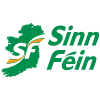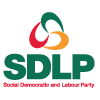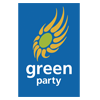Party policy summary
agendaNi outlines the parties’ main proposals for schools and youth and children’s services, from their Assembly and Westminster manifestos.
 Sinn Féin
Sinn Féin
Minister: John O’Dowd MLA
Assembly Spokesman: Chris Hazzard MLA
Oireachtas Spokesman: Seán Crowe TD
Sinn Féin wants the education system to be grounded in equality and excellence. It promises to cut back on bureaucracy and ensure that more resources are put into front-line services, especially through the establishment of the Education and Skills Authority. New schools should be built on the basis of area needs. The party aims to harmonise the island’s two education systems, raise standards (to ensure equality), and promote and facilitate Irish-medium education.
In its Westminster manifesto, Sinn Féin commits to extending the entitlement to free school meals for children. Entitlement was extended on a phased basis, from the start of the 2010-2011 school year, to lowincome nursery and primary school children of working parents.
The party’s 2011 Irish general election manifesto prioritises early intervention for children with autism and an end to state subsidising of private education. It also prioritises the introduction of a state-owned pre-school system in the Republic, the abolition of exam charges, a booklending scheme across all primary and secondary schools, and the creation of 500 new teaching posts.
 DUP
DUP
Assembly Spokesman: Mervyn Storey MLA
Westminster Spokesman: Sammy Wilson MP MLA
The DUP envisages a comprehensive, long-term plan for the sector, including a roadmap towards a single education system. It supports an individual education plan for every pupil based on a simplified pupil profile, as well as legislation to implement a special educational needs strategy. The revised curriculum should be reviewed so that principals and teachers have more freedom to adapt to pupils’ particular circumstances.
Teacher recruitment should be reformed, it believes, by removing the exemption for teachers within the Fair Employment and Treatment Order 1998. The DUP supports grammar schools with boards of governors free to determine admissions criteria and a single form of assessment for post-primary transfer. A strategy is required to assist Protestant working class boys due to significant underachievement among this group.
It supports a cross-departmental youth strategy, universal affordable childcare and legislation on foundation years. The party declined to give agendaNi details of what this legislation would entail.
In its Westminster manifesto, the party proposes the piloting in Great Britain of child-parent centres based on a Chicago model. The model provides educational and family support to disadvantaged children and parents, and requires active and consistent participation in a child’s education.
 UUP
UUP
Spokesman: Danny Kinahan MLA
To empower schools, the UUP supports more power and flexibility for head teachers and incentives to teach in schools with high levels of underachievement. The party also supports a dedicated ‘pupil addition’ fund for individual children, aimed at tackling disadvantage. It wants to replace free school meals as a social index with “a more robust and fairer way of establishing need.”
The UUP supports school and community-led area-based planning, shared resources between schools and the introduction of a community use of schools strategy. It pledges universal entitlement to pre-school education and an early years strategy for all children between 0-6.
In 2010, the Ulster Conservatives and Unionists’ manifesto supported extending the specialist schools programme, aiming to make every postprimary school outside the grammar sector specialist.
 SDLP
SDLP
Assembly Spokesman: Seán Rodgers MLA
Westminster Spokesman: Alasdair McDonnell MP MLA
The SDLP’s main priority is better investment in and provision for nursery and primary school children. It promises to improve a “grossly underfunded” Youth Service. It envisages an education system based on parental choice of shared, Irish-medium, state or faith-based education through “appropriate access” for all. Sectors should share staff, facilities and buildings. Transfer should take place at 14, where that is suitable. It pledges to ensure that all young people continue to learn numeracy and maths after 16 years of age.
A strategy for supporting ethnic minority children in education is promised. Greater focus on STEM subjects and Irish-medium schools is supported. The party pledges to expand the availability of childcare places and to produce a strategy on affordable, quality childcare for children aged 0-14 years. In its 2010 manifesto, the party promises the extension of free nursery places to all three and four year olds.
Allia nce
nce
Education Spokesman: Trevor Lunn MLA
Alliance supports a single, integrated and shared education system. For the foreseeable future, different education sectors will continue, along with options such as mixed classes, shared schools and shared campuses. It is committed to 20 per cent of children being taught in integrated education (currently 6.6 per cent) and 40 per cent in mixed education (currently 9.9 per cent) of all types by 2020. Government should support the creation and maintenance of new-build integrated schools and formally recognise the contribution to society of ‘mixed’ schools. The party endorses area-based rather than sectoral-based planning. It wants to see a common middle-school curriculum and an end to unregulated transfer tests. Alliance wants the education budget to be re-balanced towards early and primary education and pledges a comprehensive early years strategy.
 TUV
TUV
The TUV supports academic selection where “that suits the abilities of children who wish to avail of it.” For children who do not take the academic route, there must be equal consideration and secondary education funded adequately to utilise their talents. The party supports the Dickson Plan where it successfully operates, in Craigavon, and is concerned by the disparity in pre-school provision. It opposes the establishment of the Education and Skills Authority and state funding for Irish-medium schools.
 Green
Green
The Green Party opposes academic selection, preferring that children go to their local school, with co-operation between schools to ensure the widest range of available subjects. Admissions structures should continue to be determined at a local level. An early childhood education strategy would focus on maternal health, home learning and universal pre-school provision. The party also supports improving investment in ICT, and a reformed and streamlined assessment procedure for children with special needs.





